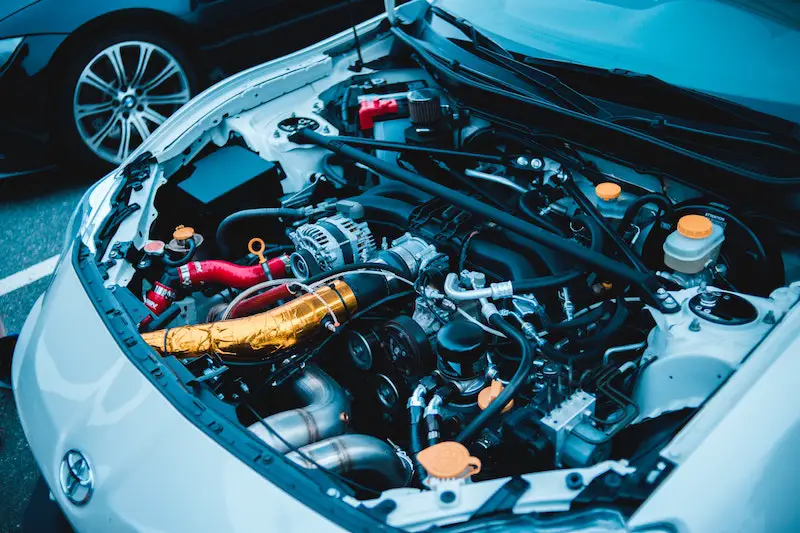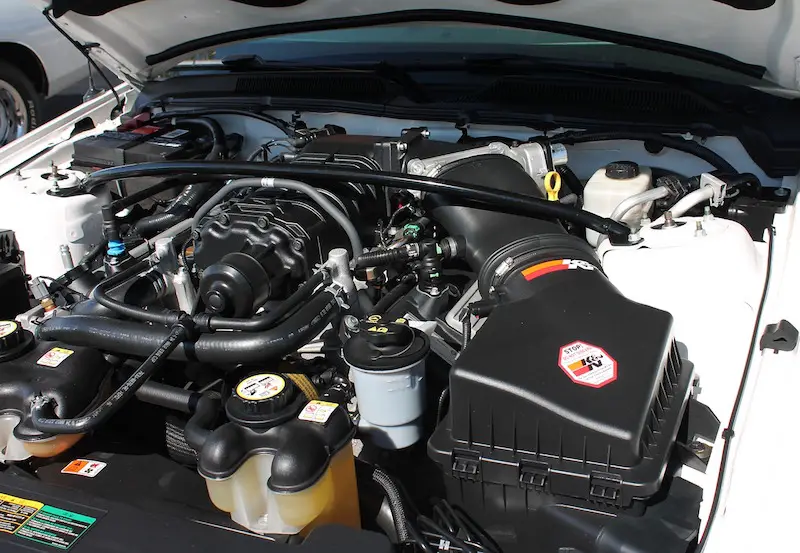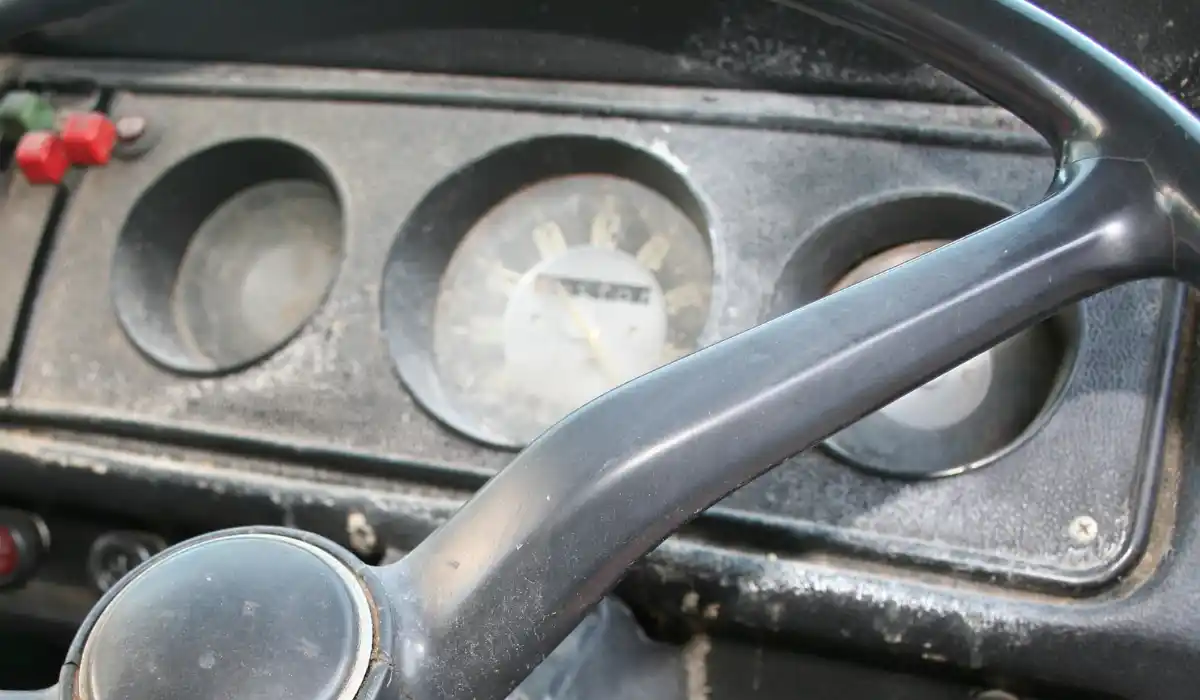
One of the most neglected parts of an engine is the fuel filter. Even though this is such an important component, very few people pay it any attention.
It’s also easy to neglect since it’s out of sight making it easy to forget about. Despite seeming insignificant, the fuel filter plays a crucial role in keeping the vehicle running smoothly.
This filter ensures no dirty fuel makes its way into the fuel system and clogs the engine. It also helps to prevent other serious engine problems related to the fuel system.
For ongoing vehicle maintenance, it’s important that the fuel filter is always clean and functioning properly. In order for this to happen, you need to know how to tell when you have a bad fuel filter or if it’s failing.
To make things easier for you, in this post we’ll go over the symptoms of a bad fuel filter and some other important information you should know. This is bound to be helpful if you think you’re having some fuel filter issues so let’s jump right into it!
Jump Ahead To:
Symptoms of a Bad Fuel Filter
The first step for maintaining your fuel filter is to know when you should check it and whether you need to clean or replace the filter. This ensures it remains in good shape so that your engine can continue to run smoothly.
Depending on the vehicle, the symptoms of a bad fuel filter will be different in various makes and models. However, here are some of the most commonly manifested symptoms that you should be worried about if you’re experiencing.
The Vehicle is Hard to Start
One of the first warning signs that might reveal you have a bad or failing fuel filter is that the vehicle will be hard to start. In some instances, the vehicle may fail to start completely and you won’t be able to get the engine running.
With a dirty or clogged fuel filter, the flow of fuel is restricted or inconsistent as it makes its way into the engine. Since the engine needs fuel to start, this will make it harder or even impossible to get the engine started.
It’s possible that the vehicle will still start after several attempts, even with a damaged, clogged, or broken filter. If you’re having trouble starting your car, you should consider some other issues before blaming it on the filter, such as a faulty starter or dead battery.
Engine Misfiring Randomly
There’s also a high possibility you have a bad or clogged fuel filter if you’re getting random engine misfires. It’s even more likely if this happens when the vehicle is carrying a heavy load or going uphill, situations where it uses more fuel.
We mentioned engine backfires in our posts on bad idle air control valve symptoms as well as motorcycle backfiring. This can also happen when you have a clogged fuel filter, which prevents enough fuel from getting into the engine.
With older vehicles, these misfires will be more common and could occur when the vehicle is idling or moving. it’s also possible for the vehicle to stutter or shake since the amount of fuel getting to the engine will vary due to the severity of the clog.
Although newer vehicles are less likely to misfire when idling from a clogged fuel filter, it’s still possible. If this is an issue you’re experiencing, start by checking the idle air control valve and the fuel filter at the same time.
Significant Drop in Engine Power
After driving your vehicle for an extended period of time, you should have a good idea how the engine feels and how much power the vehicle can generate. This means it’s easy to spot a significant drop in engine power, which is a sign of a clogged fuel filter.
These drops in power will be most noticeable when you’re driving uphill. The vehicle will have difficulty maintaining its speed and you may experience issues with acceleration while driving uphill or carrying a heavy load.
This happens since the fuel supply from the gas tank is not able to meet the demands of the engine. Fuel simply isn’t following in the right quantity and the engine isn’t able to keep up.
Engine Stalling Frequently
With an automatic vehicle you shouldn’t be experiencing any engine stalling issues. While this may seem like a catastrophic engine problem, it’s possible that a clogged fuel filter could be the reason.
This happens when a clogged fuel filter is left dirty and not attended to while it becomes even more clogged. The engine gets starved of fuel, resulting in the engine stalling from a lack of fuel supply.
You may notice that the engine stalls when you’re trying to accelerate or putting extra load on the engine. There simply isn’t enough fuel getting through to generate the extra power, so the engine bogs down and stalls.
This could definitely be a symptom of a clogged fuel filter. It’s something to look into if you’re regularly experiencing the engine stalling along with these other issues we’ve mentioned.
Lower Gas Mileage
It may seem counterintuitive, but a bad fuel filter that’s restricting fuel from getting to the engine can lead to poor fuel economy. Since the filter would be clogged, there is a higher demand on the fuel pump to provide fuel to the engine.
This results in more fuel being used and the vehicle will experience lower gas mileage. The engine would also be struggling and there would be more difficulty for the engine to move the vehicle, which burns more fuel.
Check Engine Light Comes On
The vehicle’s computer should be able to detect a problem in the fuel system, such as a bad or failing fuel filter. Once the problem is detected, the check engine light will be switched on by the ECU.
If you already suspect you have a bad fuel filter and the check engine light comes on, this could be one of the problems. At this point it would be a good idea to use your OBD-2 scanning tool to see what the error code is.
Keep in mind that the computer won’t detect a problematic fuel filter, it would simply detect that the engine is being strained or starved of fuel. Once this happens, the check engine light will illuminate, and you’ll know there is a problem you need to look into.
Damaged Fuel Pump
One of the main causes of a damaged fuel pump would be a bad or clogged fuel filter. This is a common vehicle problem, which is typically a sign of having a bad filter that should be replaced.
When the fuel filter is unable to run properly, there is a lot of pressure being put on the fuel pump. All of this added pressure will eventually damage the fuel pump while preventing enough fuel from getting to the engine.
Should you suspect issues with the fuel pump, checking the fuel filter is a good place to start. Otherwise, you may continue to have fuel pump problems even if you put in a new one.
Should You Replace or Clean the Fuel Filter?
Now that you have a better idea of the bad fuel filter symptoms to watch out for, the next step is to properly address the issue. Ultimately, there are two possible solutions to dealing with a bad fuel filter, which are cleaning its or replacing it.
Whether the filter needs to be cleaned or replaced depends on the situation. It’s a good idea to start with cleaning the fuel filter if you don’t have time or resources to buy a new one.
This is also a good option if the filter isn’t heavily clogged or it’s washable. You’ll need to know how to clean a fuel filter properly, though there are plenty of helpful videos for this.
For a better long-term solution it’s a good idea to replace the filter. This way you’ll know it’s working properly and you won’t have any debris inside or worry about getting it clogged as soon.
When Should You Replace a Fuel Filter?

Replacing the fuel filter depends on the symptoms and the situation you’re in. Simply replacing it means you’ll get to avoid dealing with the consequences of a bad fuel filter.
However, this might not always be necessary. Here are the different reasons why and when you should replace the filter.
Every 20,000 to 60,000 Miles
Replacing the fuel filter is part of your ongoing preventive vehicle maintenance. Even if it seems to be in great working condition, or you’re not having any fuel system issues, it still needs to be replaced on a regular basis.
Start by checking the owner’s manual to see when they recommend replacing the fuel filter.This normally happens between 20,000 and 60,000 miles depending on the age of the vehicle.
Older vehicles will require more frequent fuel filter changes. There should be some helpful videos on YouTube for a tutorial on how to change it correctly.
Running Out of Gas With an Old Fuel Filter
It’s never a good idea for a vehicle to run out of gas. If this happens accidentally, this would be a good time to replace the filter.
What happens when you run out of gas is that any dirt and debris sitting in the gas tank gets forced through the fuel pump. This collects on the filter and clogs everything up due to the high volume of dirt and debris.
Once the fuel filter is clogged, there is now extra strain on the fuel pump. Since the gas flow is affected, it would be important to replace the filter before running more fuel through the system.
When Repairing the Fuel System
Another great time to replace the fuel filter is when you’re working on or repairing any part of the fuel system. Since you’ll already be under the hood, it wouldn’t hurt to replace the filter with a fresh one.
This also means the filter isn’t the weak link of the fuel system. You would then know that the engine is running at optimal performance, assuming everything else is in prime shape.
Keep in mind that fuel filters on diesel vehicles should be replaced more often than those on gas vehicles. This is because diesel tanks are more prone to bacteria and fungus growth.
It doesn’t hurt to run some fuel injector cleaner through the diesel system either. This also helps to prevent any unwanted growth and keeps the fuel filter in better shape.
Your Questions About Bad Fuel Filters, Answered
Will a Bad Fuel Filter Throw a Check Engine Light?
Yes, it’s very likely that a bad fuel filter will throw a check engine light. In this case, you can use your OBD2 scanner to see what the error is. If the error shows up as a problem with your fuel filter, then you know it’s something you can start troubleshooting and working towards fixing.
Final Thoughts
Since the fuel filter is an important component of the vehicle’s engine, it shouldn’t be overlooked when it comes to keeping the vehicle running at peak performance. It should now be easy for you to tell when you’re experiencing symptoms of a bad or failing fuel filter.
Thankfully, fixing a bad fuel filter is rather simple and affordable. Despite this being an easy fix, don’t overlook some of the other issues that could be plaguing the fuel system in your vehicle.
When in doubt, bring your vehicle to a professional mechanic who could let you know exactly what’s wrong. Otherwise, make the effort yourself to get everything working again for your own peace of mind.



Leave a Reply